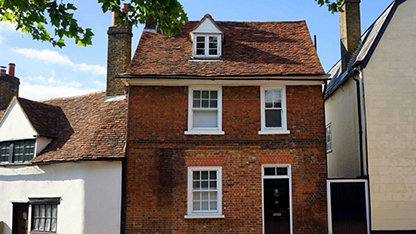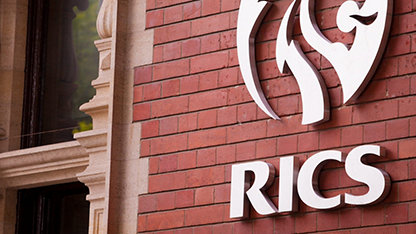RICS Residential Market Survey, April 2023
- Twelve-month sales expectations continue to depict an improved and steadier outlook for the market
- Agreed sales reading for April is the least negative since July 2022
- New buyer demand figures drop as number of properties on the market increases slightly
- Rental prices anticipated to be driven higher over the next few months as demand continues to outstrip supply
The Royal Institution of Chartered Surveyors (RICS) Residential Market Survey - April 2023, reported a market continuing to struggle, with high borrowing costs and an uncertain economic outlook remaining the main challenges for home buyers.
Starting with new buyer demand, in terms of net balance, the figure for April dropped to -37% from the -30% recorded in March (captured on a seasonally adjusted basis).
However, most of the survey’s indicators have improved slightly from the lows hit towards the end of 2022.
The indicator capturing agreed sales for April returned a net balance of -19% up slightly from -30% last month. Interestingly, this represents the least negative reading since July 2022.
In terms of supply, survey respondents cited an overall flat picture for new instructions during April, with the net balance declining slightly to -4% (from -6% in March).
The recent decrease in demand and sales has resulted in a slight increase in the average number of properties held on estate agents’ books (36 homes on average for each agent, compared to 35 in February and March).
Anecdotal commentary from survey respondents provided insight into recent buying trends with several respondents citing buyers looking for smaller, more affordable homes while people are moving out of older homes to buy more energy efficient new builds.
The latest feedback from the survey in relation to house prices remains in negative territory with a net balance of -39% in April, although this current reading is less negative compared to net balances of -43% and -47% seen in March and February.
Looking ahead to the next twelve-months, the price expectations indicator continues to improve from the lows hit during the end of 2022, returning a net balance of -16% in April compared to the -24% recorded in March.
Moving across to survey results from the rental market, tenant demand has increased in the three months to April according to a net balance of +41%
However, a fall in landlord instructions was recorded over the same timeframe, with a net balance of –24%% of respondents reporting a decline. With demand continuing to outstrip supply, rental prices are anticipated to be driven higher over the next few months.
Simon Rubinsohn, RICS Chief Economist, commented:
“Although the newsflow around housing does appear to have steadied over the past month, key indicators from the RICS survey point to a series of challenges in both the sales and lettings space.
“Most notably, buyer demand still appears to be subdued in the face of relatively high borrowing costs, the prospect of at least one more interest rate hike and ongoing affordability challenges.
“Meanwhile, the imbalance between demand and supply in the letting market still remains stark despite the significant increase in rents.
Critical to addressing both areas of the market is the delivery of more supply. However, indicators of the level of new housing starts in the early part of the year suggests that the picture is if anything continuing to soften as housebuilders activity reflects both macro uncertainty and policy developments”.
Samuel Rees, RICS Senior Public Affairs Officer commented:
“Our data has consistently shown that supply is one of the biggest challenges to housing in the UK, with prices and affordability driven, in part, by the availability of stock. The removal of the annual 300,000 new homes ambition by the government, along with wider planning, material and labour concerns are adding to the challenges of house building.
“RICS are also increasingly concerned about the pressures facing the rental market. Demand for rental homes remains high, but stock remains low, and landlords are increasingly exiting the market – which is translating into higher rents. The government's proposed changes in the Renters Reform Bill, while supporting quality and transparency for tenants, will increase pressure on landlords and may force even more to exit the market.
“We are calling on the government to reinstate its housebuilding target to drive supply and give confidence to the market that new homes are coming. Furthermore, the government needs to ensure that proposed reforms to the rental market are delivered in such a way that it increases support for landlords and tenants and maintains and grows supply”.
-ENDS-
About RICS
We are RICS. Everything we do is designed to effect positive change in the built and natural environments. Through our respected global standards, leading professional progression and our trusted data and insight, we promote and enforce the highest professional standards in the development and management of land, real estate, construction and infrastructure.
Our work with others provides a foundation for confident markets, pioneers better places to live and work and is a force for positive social impact.
For more information:
Kate King
Kris Hicks












